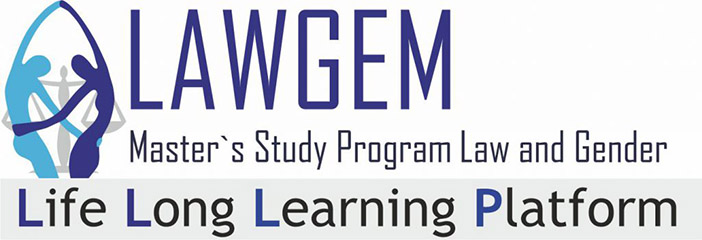Faculty of Law University of Belgrade in the cooperation with the OSCE Mission to Serbia organized the Spring School/Pilot Master – Law and Gender. This Spring School was based on the project LAWGEM and served as a kind of the pilot practicing of the future master`s study program Law and Gender. It covered all courses contained in this master`s study program curriculum, and the reading materials consisted to a great extent of the books published within the LAWGEM project. The School was organized in a hybrid form – in person at the Faculty of Law University of Belgrade and online, with 69 participants (students of undergraduate, master and PhD level), both from Serbia and other countries around the world (Albania, Belarus, Bosnia and Herzegovina, Brazil, China, Croatia, France, Germany, India, Iran, Italy, Montenegro, Russia and Vietnam). It is certain that participants of this School have gained valuable knowledge which will help them on their academic path and in their professional careers. On the other hand, the Spring School represented an excellent preparation of lectures and pedagogic experiences of the scholars from the University of Belgrade Faculty of Law for the future conducting the master’s study program Law and Gender.
One of the optional courses within the Spring School was the course on “Gender Competent Criminal Law“, which was held by Assistant Professor Dr. Ivana Marković. Professor Dr. Marković had three lectures, one related to the general part of criminal law, and two lectures related to a special part of criminal law. In her first lecture, the Professor explained general institutes of criminal law, and developments such as “battered woman syndrome”, but also practices of so-called “marry your rapist laws” in different national legislations. As part of the special part of criminal law, the Professor further introduced the Council of Europe Convention on Preventing and Combating Violence against Women and Domestic Violence. The obligations of States in the implementation of standards related to specific criminal acts, the scope of application, the definition of gender-based violence, as well as different forms of gender-based violence were introduced. During lectures, participants had the opportunity to actively discuss general institutes, cases of female genital mutilation, as well as the possibilities of developing criminal law in accordance with a gender-sensitive perspective.
Gender Competent Criminal Law 1 – General Part of Gender Competent Criminal Law
Gender Competent Criminal Law 2 – Special Part of Gender Competent Criminal Law

